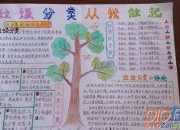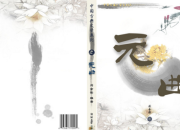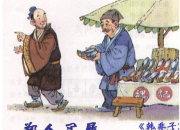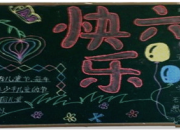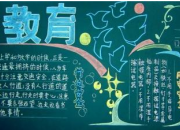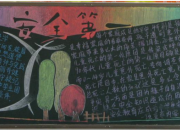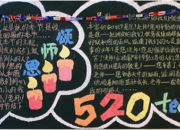介绍山西的作文
时间:2021-08-31介绍山西的作文1
今年暑假,我和爸爸、妈妈、姐姐,去了中国古文化博物馆山西。在山西,我去了平遥的古城、灵石县的王家大院和祁县的乔家大院,这三个地方,使我记忆犹新。下面,请听我娓娓道来吧!

王家大院
王家大院,始建于明末,建成于清朝,距今已有好几百年的历史了。他们家有农,从商到官,官至二品。他们家有一个院落是为皇帝出行访问时居住的,之所以皇帝一外出就到王家大院住,是因为王家大院很像紫禁城,还有王家大院的后院,像故宫一样,很气派。
乔家大院
乔家大院,始建于清乾隆时期,后又在清同治、光绪年间及民国初年多次增修,时间虽跨过了两个世纪,却保持了建筑风格的浑然天成。其中大当家乔致庸的屋子,宽1。5,长2米,防火、防盗、防偷听等,因为他们家是经商的,他们家的钱占当时国库的七分之一。
平遥古城
当我去平遥古城时,已经接近黄昏了。在古城,我走在一条条美食街上,很兴奋,琳琅满目的美食,使我这个“吃货”的眼睛看不过来了,就连空气中都弥漫着诱人的香气,有金黄的蛋黄酥、鲜红的牛肉等。我吃了好多的美食,有刀削面、剔尖、石头饼、莜面栲栳姥、烤梨等。
王家大院和乔家大院的建筑,蕴含着许多中华文化知识,而平遥古城的美食是不是给人一种垂涎欲滴的感觉呢?美食不是靠嘴说出来的,而是要亲自去尝试,去过平遥的人都知道“我在平遥等你”这句话在哪儿。有时间,你也去山西逛逛吧!
介绍山西的作文2
大家好!我来自山西。一提到山西。不得不说说山西的醋和煤。被称为煤乡的山西。名不虚传--煤产量居全国第一。山西已经建起大同、阳泉、西山、汾西、潞安、晋城、轩岗等七个大型矿务局和霍州中型矿务局以及东山、荫营、小峪、王坪、寨沟、固庄、南庄等八个小统配矿务局,此外还有一个全国最大的中外合资露天煤矿。起储量之大。足以看出。说起醋,我得多说:明清以来,山西便以醋名扬海内外,成为当时山西的一大支柱产业。上千年的历史积淀,不仅使山西形成了深厚的“醋文化”,而且制醋作坊遍地开花,延绵至今山西仍有制醋企业1100多家,年产量25万吨,约占全国总产量的十分之一,居全国之首,其中老陈醋年产量15万吨。拥有辉煌历史的山西老陈醋在中国醋业一骑绝尘。
毫不夸张的说,山西醋业正处在一个生死抉择的关口。一方面,省内多而小的企业连年征战,不仅消耗资源而且破坏市场,企业越来越弱;另一方面,外省企业不断发展壮大,形成了对山西醋业的强大压力。山西醋业面临着前所未有的严峻挑战。
我的演讲就到这里。希望山西的醋和煤,可以给你永久的记忆。
谢谢。
介绍山西的作文3
Taiyuan, the capital of Shanxi Province, is bounded on three sides by mountains. It has a 2500-year history and in ancient times was an important military town. Now Taiyuan is one of China's heavy industrial cities and accounts for more than half the national coal mining output.
Taiyuan also has a wealth of tourist attractions and notably among these is the Jinci Temple. This is the city's most attractive temple although the Shuangta Si (Twin-Pagoda Temple) has become a symbol of Taiyuan on account of its unique architecture. Another major attraction is the Tianlong Shan Stone Caves where magnificent sculptures dating from the Tang Dynasty (618-907) may be seen.
Taiyuan benefits from convenient public transport systems as the city is the provincial transportation hub. Accommodation facilities have become more and more advanced over recent years and range from 5-star hotels to a selection of comfortable guest houses.
The gourmand should be aware that Shanxi noodles are highly reputed all over China, as well as the local vinegar. Other local delicacies are the Tou Nao, the Steamed Dumpling, Sausages and Mutton Soup. To accompany these wholesome foods there are Fen Jiu (Fen Wine) and Zhuye Qing (Zhuye Qing Wine). As well as its cuisine the city is noted for products such as finely crafted lacquer ware.
介绍山西的作文4
Taiyuan is a historic city, Gu Cheng Jinyang, was founded in about 497 BC, for the early capital of the Zhao. In 246 BC, Qin Shi Huang at the world for 36 counties, Taiyuan County home early, from the start of Taiyuan said. After the Northern Dynasties, Sui and Tang period, the city of Taiyuan has been for ages. In the Five Dynasties, has for the Hou Jin Yang, Han, the North's capital of Seoul. In 960 AD, Zhao Kuangyin to overthrow the Later Zhou Dynasty, the establishment of the Northern Song Dynasty, sent his brother Zhao Guangyi in the year 979 years to capture Jinyang, set fire to the city, the city reduced to ashes generation. In 982 AD, Zhao Guangyi and Pamela reconstruction will be assigned to the Department of Taiyuan City. It was not until early in this warlord Yan Xishan rule of Shanxi, Taiyuan, in order to the capital, and down more than two thousand years, the ancient city of Taiyuan, after the war, repeatedly replacement. April 24, 1949, the Chinese People's Liberation Army to capture Taiyuan before the end, the ancient city back to the hands of the people, then on to obtain a new lease on life. In the long history, Taiyuan, has developed its famous handicraft industry and commerce. As early as the Tang and Song period, Taiyuan, has become a more developed cities in the handicraft industry. Taiyuan Ceramics of the Song Dynasty, 'grain porcelain patterns' unique in the country. After the Yuan Dynasty, Taiyuan, the country's arms manufacturing center. Tang, Song, Taiyuan, the business has developed rapidly. Especially in the Ming Dynasty, when the Taiyuan major Nanguan workshops, shops spread all over, unprecedented, the ancients had 'Bi Tian Guang, the vein to' praise.
介绍山西的作文5
给大家猜个谜语“一叶落锅一叶飘,一叶离面又出刀,银鱼落水翻白浪,柳叶乘风下树梢”,家乡的刀削面。怎么样猜不出来了吧!哈哈,猜不出来了吧!告诉你吧,这就是我们山西的著名小吃——刀削面。
刀削面的做法很简单,首先要揉面,要一直揉到不粘手为止;接着切点葱花、香菜和白菜备用然后烧水;水烧开后,就可以下锅了。把面团放在手上,再找一把削面刀,就可以开始了。随着削面刀的来回穿梭,一叶叶又薄又“苗条”的面片便稳稳当当的落入了锅中。等上三四分钟,把切好的葱花、香菜和白菜放进锅中。再适当的放一些调味品调味。就这样,一碗色、香、味俱全的刀削面就做好了。
怎么样,听我这么一说,心动了吧!那就快来品尝品尝吧。
